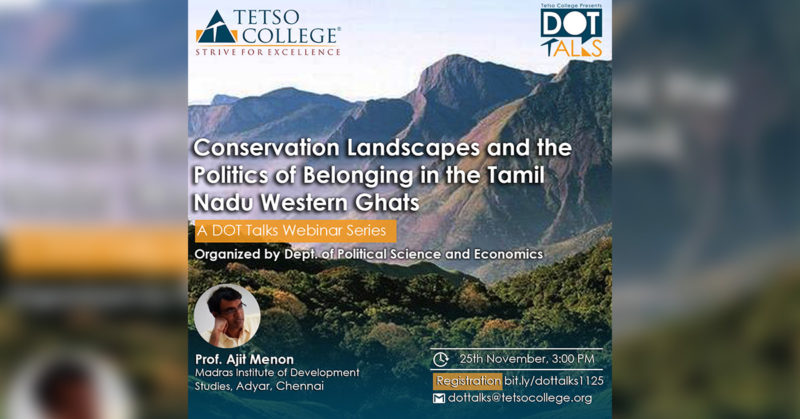In 2012, the Western Ghats was inscribed as a UNESCO World Heritage Site. UNESCO inscribes both ‘natural’ and ‘cultural’ sites; the Western Ghats was designated a natural site. What does it mean to be a ‘natural’ World Heritage Site? What and who belongs in such sites and what and who does not belong? In this seminar, I look at how the declaration of the Western Ghats as a World Heritage Site while furthering the efforts of conservationists to imagine and protect the region as one of great endemic biodiversity, has also resulted in the labelling of certain people as encroachers and the marginalization of particular agrarian landscapes. I tell this story in the context of Gudalur, a region in the Nilgiri Hills of the Tamil Nadu Western Ghats. Gudalur is home to Mudumalai Tiger Reserve and numerous elephant corridors, in addition to being a watershed for east flowing rivers. It is also, however, a large tea estate area inhabited by thousands of tea estate workers, small-scale farmers and Adivasis. My reason for telling this story is both conceptual and empirical. I take issue with the idea of a natural landscape and that conservation is about the protection of these natural landscapes. I argue instead that nature is socially constructed and that conservation is as much political as it is ecological. This I do by looking at the environmental history of the region and situating this history within a wider story of colonialism and post-colonial development. Such a narration is important to highlight the migratory history of the region and how state policy encouraged and supported people’s desires to make Gudalur their home. People came in the 19th and 20th centuries to work on coffee and tea estates, in the 1940s and 1950s to claim land and support the Grow More Food campaign, and in the 1960s and beyond as they were denied citizenship in erstwhile Ceylon due to ethnic tensions and hence returned ‘home’. This complicated history must be understood for its own sake but also to engage with the ‘self-evident’ truth that forest conservancy is a simple and necessary normative choice. By telling this story, I suggest that conservation landscapes such as this UNESCO World Heritage Site are rarely win-win situations and thus require much more critical engagement.
About the Speaker:
Prof. Ajit Menon is a Professor at the Madras Institute of Development Studies. His research interests centre on the political ecology or the politics of development and conservation. His most recent edited volume along with Sharad Lele is titled Democratising Forest Governance in India. He is currently completing an edited volume on the Politics of the Local in Natural Resource Governance in India and working on a book on Conservation and belonging in the Nilgiris which he is going to talk about in the webinar.
Date: 25th November 2020
Time: 03:00 PM
This public webinar is jointly organized by the Departments of Political Science and Economics under DOT Talks webinar series.

